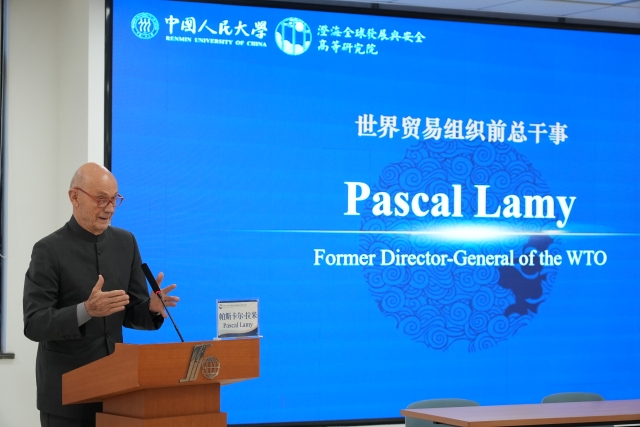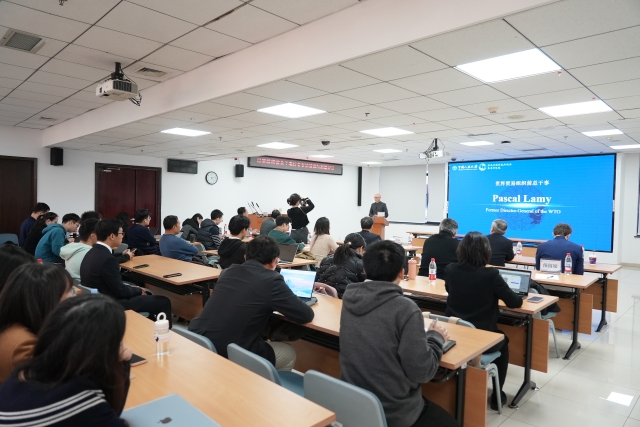Global trade "is a bit like water – you can't stop it from flowing," the former head of the World Trade Organization, Pascal Lamy, has warned, cautioning that Washington's protectionism will hurt the US more than its rivals.

Pascal Lamy, former WTO director-general, speaks at Renmin University of China in Beijing on November 9, 2025. (Photo: Qin Shaolong/South)
Speaking at a high-level dialogue in Beijing held by Chenghai Institute of Global Development and Security, Renmin University of China on November 9, Lamy stated that despite growing tensions, globalization has not halted but is undergoing transformations. He accused Western economies, "particularly the US," of "weaponizing trade" and said China was adjusting rather than retreating.
"The only place with a very serious drive toward protectionism is the United States," he said, adding that the biggest negative impact would be borne by the US itself, as tariffs ultimately end up being paid by consumers.
US President Donald Trump declared global double-digit tariffs in April on what he called "Liberation Day." The tariffs briefly took effect before being largely paused for four months to allow negotiations, then were reinstated on August 7, raising the U.S. effective tariff rate to over 18 percent—its highest since 1934, according to Yale's Budget Lab.
An analysis by global investment and banking giant Goldman Sachs suggests that U.S. consumers will bear the majority of the tariff burden—absorbing 55% of the costs by the end of this year, rising to 70% by the end of next year. It estimates that American businesses will shoulder 22%, while foreign exporters will account for 18%, with the remaining 5% likely to be evaded.

Pascal Lamy, former WTO director-general, speaks at Renmin University of China in Beijing on November 9, 2025. (Photo: Qin Shaolong/South)
"The US only accounts for around 13 percent of global imports, so the world trade system will not be turned upside down," Lamy said, although he warned that Washington risks damaging its own relations with key partners.
China's recent trade figures reflect this trend. According to the General Administration of Customs, China-US trade fell 15.9 percent in the first 10 months of this year compared with the same period in 2024, while trade with the European Union increased by 4.9 percent, with ASEAN countries by 9.1 percent, and with Belt and Road partners by 5.9 percent. Overall, China's total goods imports and exports rose 3.6 percent year on year.
Lamy noted that "China and Europe are big and responsible enough to uphold a rules-based, predictable trading system" and urged closer cooperation, saying the two sides are "complementary in many ways," with strong potential to work together on areas such as climate action, artificial intelligence, and the digital economy.
Recent figures indicate that China and the EU remain each other's second-largest trading partners. During talks in Beijing on November 4 with Estonian Foreign Minister Margus Tsahkna, Chinese Foreign Minister Wang Yi said China is willing to negotiate and sign a free trade agreement with the EU, advance synergy between the Belt and Road Initiative and the Global Gateway initiative, and jointly work for the reform and improvement of the global governance system.
Lamy acknowledged that, although Beijing and Brussels may diverge in their approach to Washington, "we have areas where we agree on the direction of development."
Liu Xiaodi and Qin Shaolong reported from Beijing, China.
Reporter | Liu Xiaodi, Huang Yuhan (intern)
Photographer | Qin Shaolong
Editor | Yuan Zixiang, James Campion, Shen He
















